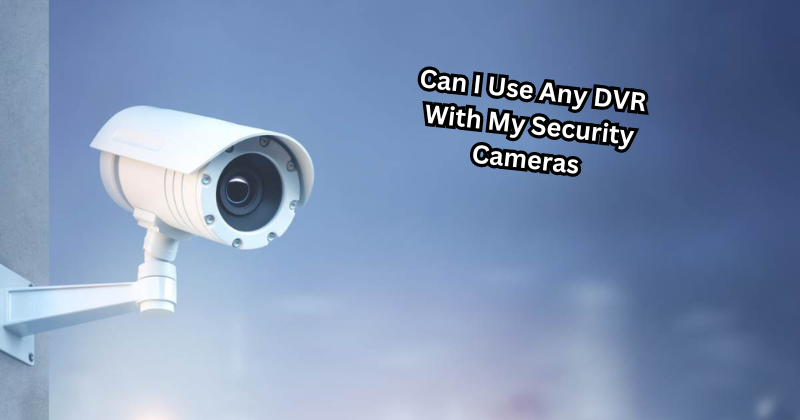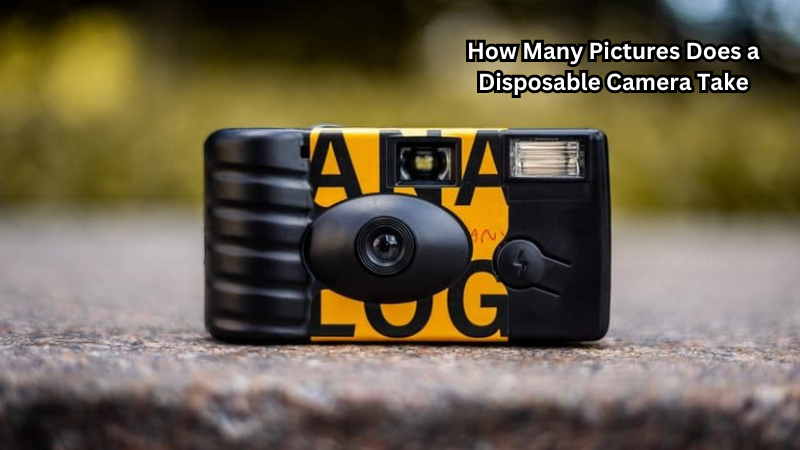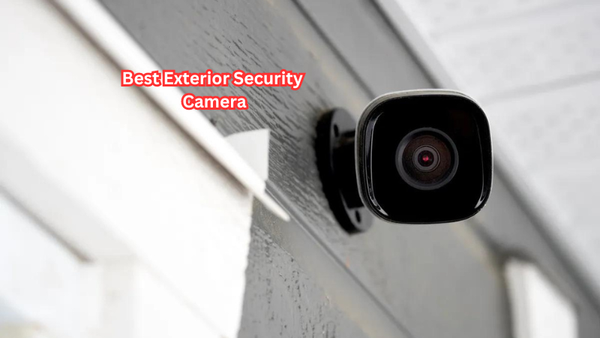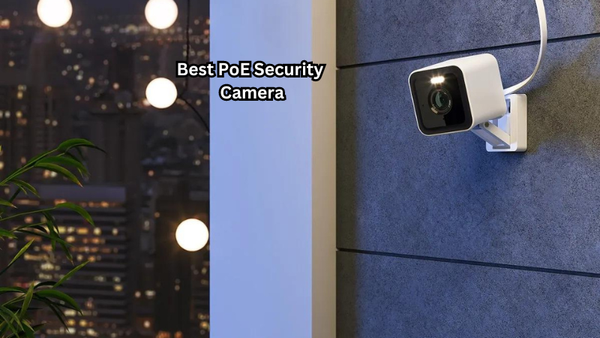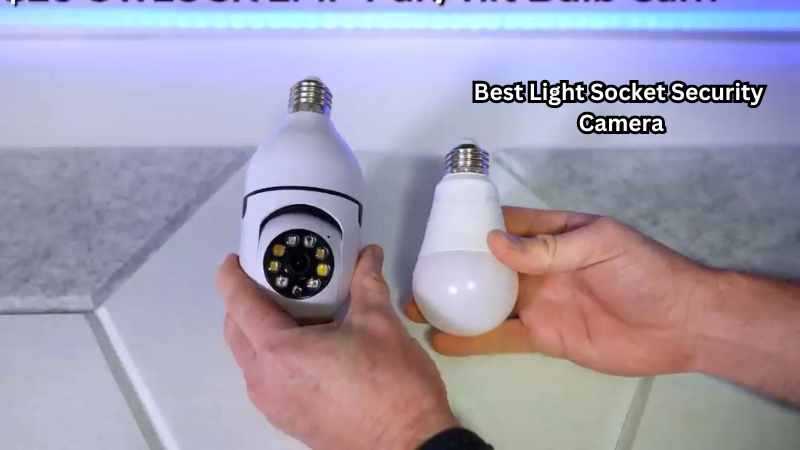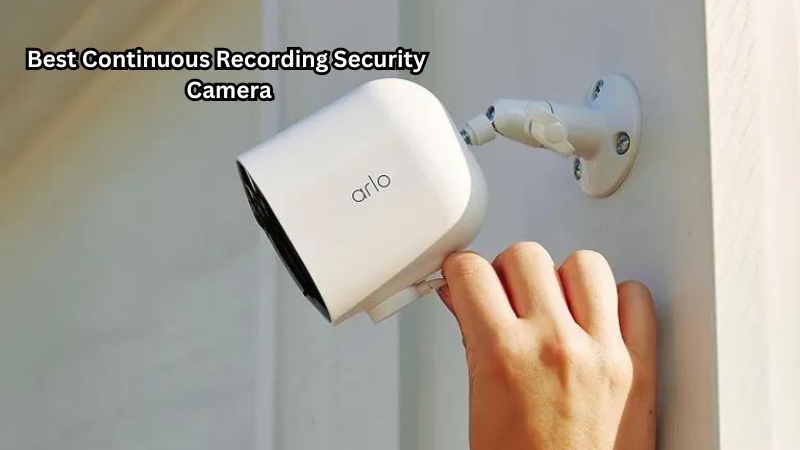The advancement of technology has brought numerous changes to the security industry, and one of these significant developments is the emergence of digital video recorders (DVRs). These devices have replaced traditional analog recording methods and offer better features like remote access, high-quality recordings, and easy installation.
If you are planning to install security cameras for your home or business, you might wonder if you can use any DVR with them. In this article, we will explore the compatibility of different types of DVRs with security cameras and provide insights on how to choose the right one for your needs.
What is a DVR and How Does it Work
A DVR, or digital video recorder, is a device used for recording and storing video footage from security cameras. It works by converting analog signals from the cameras into digital format and then compressing and saving the recordings onto a hard drive. This allows for easy access and playback of footage.
There are different types of DVRs available, including standalone units, PC-based systems, and network video recorders (NVRs). Standalone units are self-contained devices that can be connected to multiple cameras. PC-based systems use a computer as the main processing unit, while NVRs are specifically designed for IP cameras.
Plus, most DVRs come with software that allows for remote access and control through a computer or smartphone. This feature is especially useful for monitoring your property while you are away.
Types of Security Cameras Compatible with DVRs
DVRs are compatible with various types of security cameras, including analog CCTV, HD-CVI, and IP cameras. Analog CCTV cameras are widely used and have been around for a long time. They produce low-resolution images but are still cost-effective and suitable for basic surveillance needs.
HD-CVI (High Definition Composite Video Interface) cameras provide better image quality than analog ones. They use coaxial cables to transmit digital signals to the DVR, making them compatible with both analog and HD-CVI recorders. This allows for easy upgrading from an analog system to an HD-CVI one without having to replace all the cameras.
IP cameras, on the other hand, use network cables and transmit data in digital format. They offer the highest image resolution and have advanced features like motion detection, pan-tilt-zoom capabilities, and remote access. Most DVRs that are compatible with IP cameras can support both analog and HD-CVI cameras as well.
Choosing the Right DVR for Your Security Cameras
When it comes to choosing a DVR for your security cameras, there are a few factors to consider. Firstly, you need to ensure that the DVR is compatible with the type of cameras you have or plan to install. It's also essential to check the number of camera channels the DVR can support.
Secondly, consider your storage needs. The amount of footage you can store on a DVR depends on its hard drive capacity. If you need long-term storage, opt for a larger hard drive or one that allows for external storage expansion.
Lastly, think about additional features that may be useful to you, such as remote access and monitoring, motion detection, and scheduled recording. Some DVRs also come with advanced features like facial recognition and license plate capture.
Also, keep in mind your budget and do some research to find reputable brands that offer quality DVRs at a reasonable price. Don't compromise on the quality of the DVR as it is crucial for effective surveillance.
Can You Use Any DVR With Your Security Cameras
In conclusion, the answer is both yes and no. Yes, you can use any DVR that is compatible with your type of security camera. However, it's essential to do your research and choose a reputable brand and model that meets your specific needs.
Furthermore, if you already have existing security cameras, make sure to check their compatibility before purchasing a DVR. If you plan on upgrading or expanding your system in the future, consider investing in a versatile DVR that can support various camera types.
Lastly, don't forget about proper installation and maintenance of your DVR and cameras. It's crucial to follow the manufacturer's guidelines and regularly check for updates and malfunctions.
Additionally, ensure that your DVR is protected from power surges and outages to prevent data loss. With the right DVR and security cameras, you can enhance the safety of your property and have peace of mind knowing that your surveillance system is efficient and reliable. So, always choose wisely when it comes to selecting a DVR for your security cameras.
Can I Use Any DVR With My Security Cameras – Final Thoughts
Write in 220 words:
In this article, we have discussed the compatibility of different types of DVRs with security cameras and provided insights on choosing the right one for your needs. We learned about how a DVR works, the various types of security cameras compatible with them, and factors to consider when selecting a DVR.
It's essential to understand that not all DVRs are created equal and thus may not work with every type of security camera. Therefore, it's crucial to do your research and choose a reputable brand and model that meets your specific needs.
Additionally, proper installation, maintenance, and protection of your DVR are also vital for the longevity and efficiency of your surveillance system. By following these guidelines and selecting a compatible DVR for your security cameras, you can have peace of mind knowing that your property is under constant monitoring and protection.
Mistakes to Avoid When Choosing a DVR for Your Security Cameras
When choosing a DVR for your security cameras, there are some common mistakes that you should avoid. Firstly, don't assume that any DVR will work with your cameras. Herein lies the importance of doing thorough research and ensuring compatibility.
Secondly, don't compromise on the quality of your DVR to save money. A low-quality DVR may lead to poor image quality, frequent malfunctions, and inadequate storage space. In the long run, this could end up costing you more in repairs or replacements.
Another mistake is overlooking the number of camera channels supported by the DVR. Make sure to check if it can support all your current and future cameras.
Additionally, not considering your storage needs can result in insufficient space for storing footage. Always opt for a DVR with enough storage capacity or expansion options to meet your needs.
Lastly, be cautious of buying DVRs from unknown or unreliable brands, as they may not offer quality products or proper customer support.
By avoiding these mistakes and carefully considering your needs and budget, you can choose the right DVR for your security cameras and ensure a reliable and efficient surveillance system. So, take your time and make an informed decision when it comes to selecting a DVR for your security cameras.
Does the Type of DVR Impact the Quality of Your Security Camera Footage?
The type of DVR you choose can have a significant impact on the quality of your security camera footage. A low-quality or incompatible DVR may result in poor image resolution, which defeats the purpose of having high-definition cameras.
Additionally, some advanced features offered by certain DVRs, such as motion detection and facial recognition, can significantly enhance the effectiveness of your surveillance system. However, these features will not work if your DVR is not compatible with them.
Moreover, a reliable and high-quality DVR can ensure that your footage is stored safely and can be easily accessed when needed. This is especially important in the case of incidents or emergencies where you may need to review footage quickly.
Also, keep in mind that the type of DVR you choose may impact the lifespan and maintenance requirements of your system. A low-quality DVR may lead to frequent malfunctions or failures, requiring costly repairs or replacements.
FAQs
Can I use any DVR with my analog cameras?
Not all DVRs are compatible with all analog cameras. When selecting a DVR for your analog cameras, ensure that the video format and connectivity options are compatible with your specific CCTV security cameras. It's essential to verify the compatibility between your security systems and the DVR you plan to use.
Is it possible to connect IP cameras to a DVR?
No, IP cameras typically require a Network Video Recorder (NVR) instead of a DVR. While DVRs are designed for analog cameras, NVRs are used with IP cameras and often offer better integration with wireless security cameras and advanced features through network connections.
Can I use free security camera software with my DVR NVR systems?
Yes, you can use free security camera software with your DVR NVR systems to manage and monitor your CCTV security cameras. Many software options are available that support both DVR and NVR setups, providing functionalities such as live viewing, recording, and playback for your security systems.
Are there DVR NVR systems that support both analog and IP cameras?
Yes, there are hybrid DVR NVR systems that support both analog and IP cameras. These systems provide flexibility for users who have a mix of analog cameras and IP cameras, allowing them to manage all their CCTV security cameras through a single security system.
What should I consider when choosing a Network Video Recorder for my wireless security camera?
When choosing a Network Video Recorder for your wireless security camera, consider factors such as video format compatibility, the number of camera channels supported, storage capacity, and integration with your existing security systems. Ensuring compatibility with your wireless security cameras and overall network infrastructure is crucial for optimal performance.
Conclusion
In conclusion, choosing the right DVR for your security cameras is crucial for an efficient and reliable surveillance system. Don't assume that any DVR will work with your cameras; always do thorough research and ensure compatibility. Additionally, avoid common mistakes like compromising on quality or not considering your storage needs.
Investing in a reputable brand and model may cost more initially but can save you money in the long run by providing high-quality footage, advanced features, and longevity of your system. So take your time, consider your budget and needs, and make an informed decision when selecting a DVR for your security cameras.
